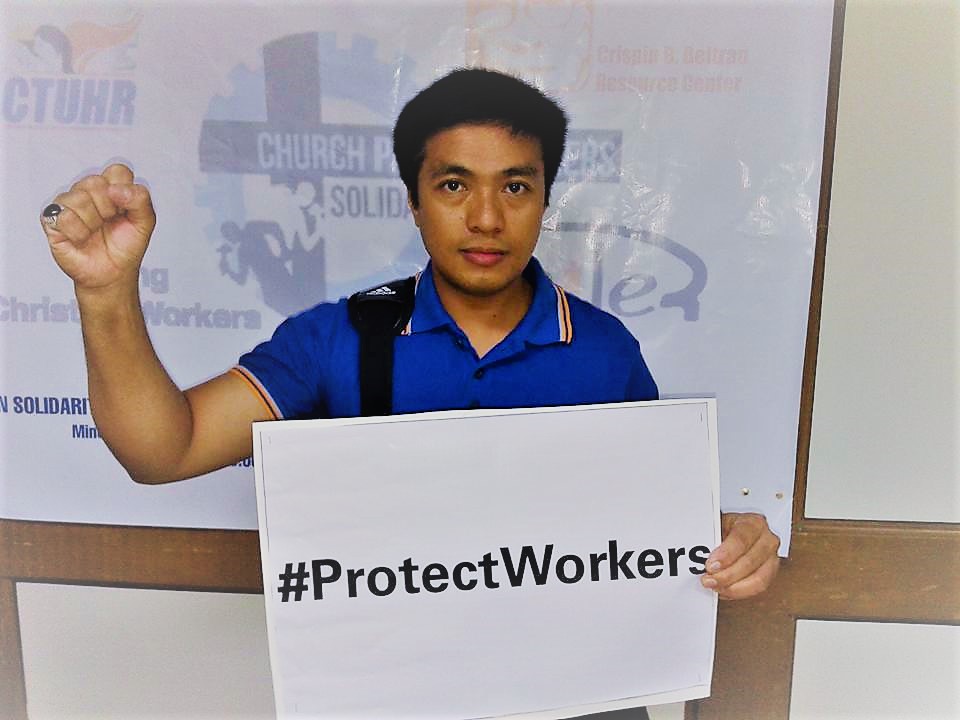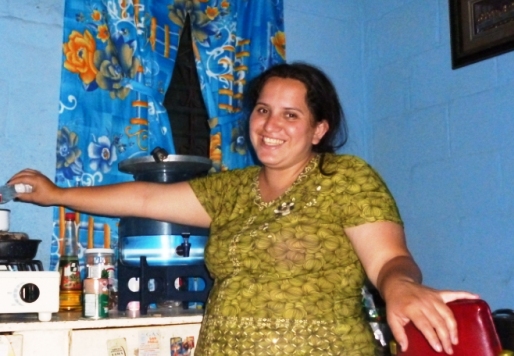
My name is George Verzosa, I come from Calbayog City (Southern part of the Philippines). I have never completed my college education because my parents could not afford to send me and my siblings to school. I migrated to Manila to find work and I worked in a sack factory as a machine operator under a contractual agency. I worked with the minimum salary, while some of my co-workers were below the minimum wage. When I had overtime hours and received extra pay, I sent it to my relatives and family way back in my province.
We were required to work rapidly because we had a “quota” to achieve and they wanted surplus production. When we did not meet the quota required for the day, it was deducted from our salary. However, when we exceeded the production quota, there was no compensation.
In 2014, my work became more precarious. I worked only three to four days a week. It was a “no work, no pay” policy, so the days I had no work, I had no income. It was extremely difficult for me to help my family and even to support my own needs, I was renting an apartment too.

 She travels around two hours by bus, and then she has to walk almost half an hour to reach the community where she teaches children of low-income families. The neighborhood where she works is poor, marginalized, and the rates of violence are high.
She travels around two hours by bus, and then she has to walk almost half an hour to reach the community where she teaches children of low-income families. The neighborhood where she works is poor, marginalized, and the rates of violence are high.
 English
English  Español
Español  Français
Français